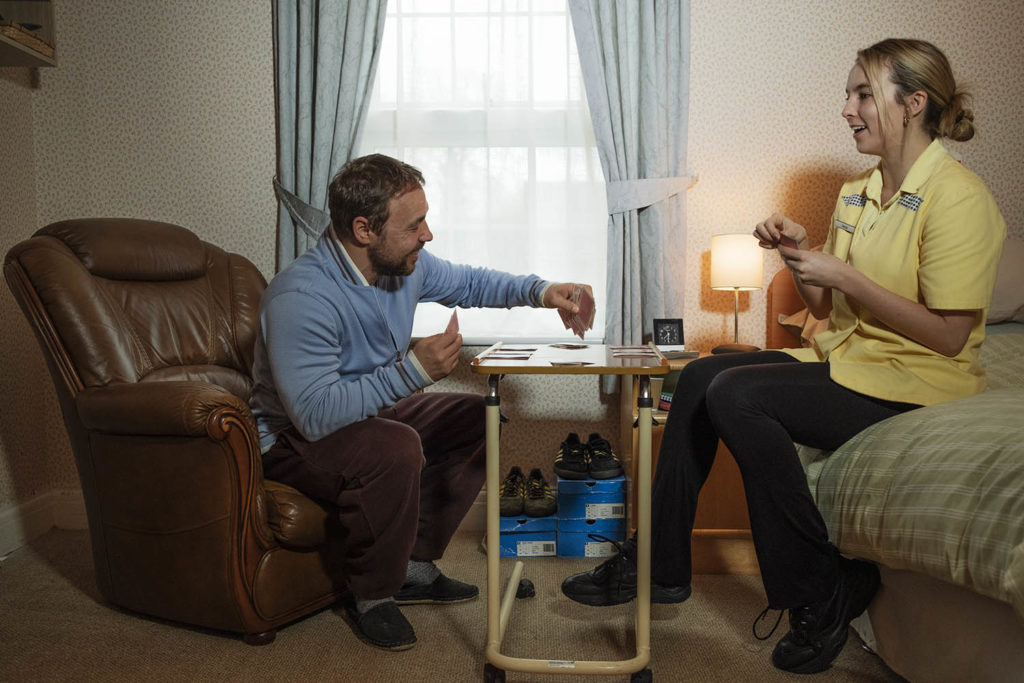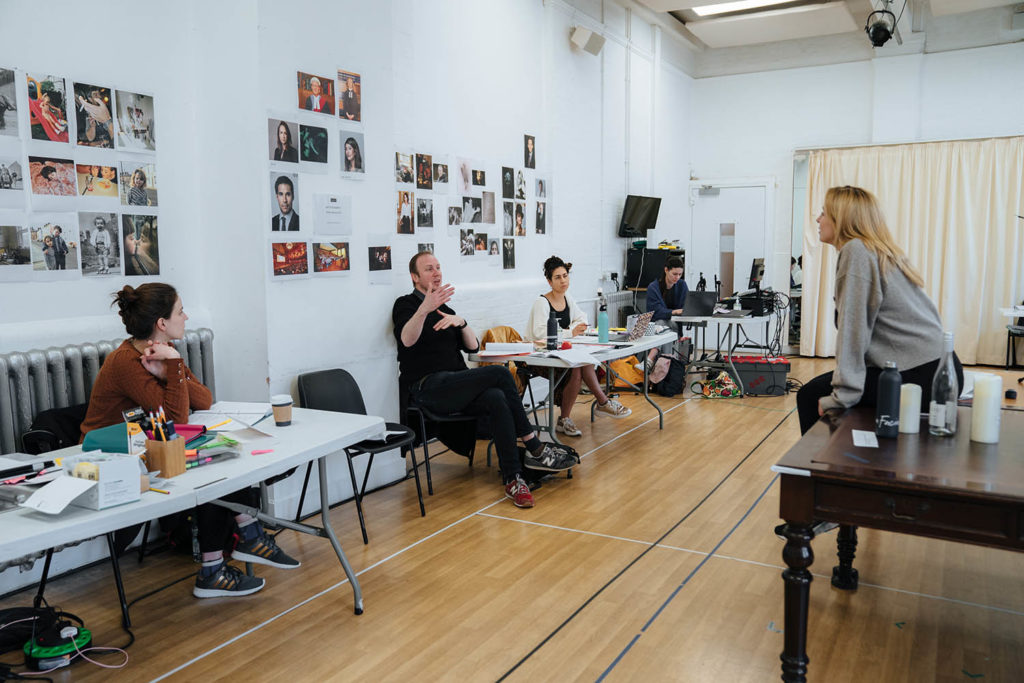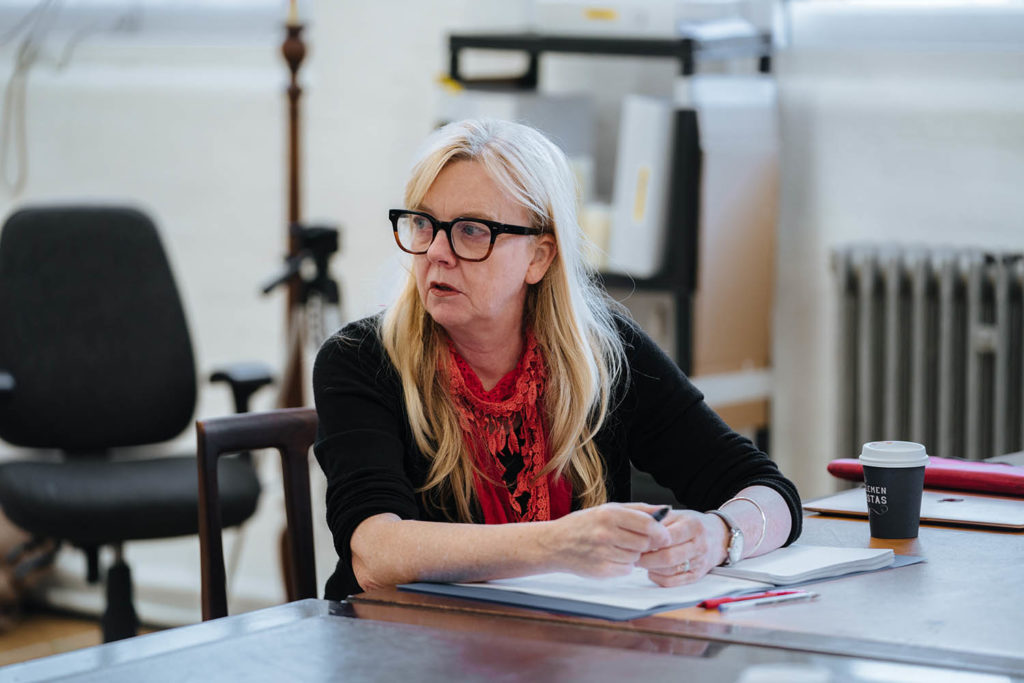
Having said goodbye to Villanelle, Jodie Comer takes to the stage – and addresses the grave injustice of women’s treatment in rape cases
Content warning: The first section of this week’s Creative Sensemaker contains some upsetting content around the issue of rape.
Ten days have passed since the finale of Killing Eve dropped on BBC iPlayer and fans bade farewell, after four seasons, to the exotic, psychotic assassin Villanelle, memorably played by Jodie Comer. In her long dance of love, death and psychological antics with Eve (Sandra Oh), she transfixed audiences around the world, and transformed a potentially two-dimensional part – the beautifully dressed, globe-trotting contract killer – into a fully formed character, whose undoubted darkness was matched by fragility and emotional need.
Initially scripted by Phoebe Waller-Bridge, Killing Eve was a sensation when it hit our screens in 2018 – remember the sheer menace of Comer’s first scene, in which she smiled at a young girl in a cafe and then flipped the child’s bowl of ice cream over her? – and, for three and a half years, retained a loyal hard core of viewers (especially in the UK and the US). To say that its concluding episode was controversial is an understatement: social media is still ablaze with fan fury at the manner in which Eve and Villanelle exited the stage.

Already, however, Comer has moved on to her next project – and one that brings her hurtling down from the hyper-real world of the erotically charged spy thriller to the terra firma of a profoundly serious social and political issue. In Prime Facie (Harold Pinter Theatre, booking until 18 June), the Liverpudlian actress makes her West End debut in Suzie Miller’s brilliant, gruelling exploration of the gap between law and justice in the treatment of rape victims (the text of the award-winning play is available here, and repays reading).
Though Comer shot to fame in a role that oscillated between couture glamour and comic amorality, she has already demonstrated her capacity to bring formidable power to drama rooted in social realism. Nobody who has seen her performance in last year’s Help (All 4) – set in a Liverpool care home in the first, horrific phase of the pandemic – will quickly forget her closing monologue: a ferocious indictment of Britain’s collective indifference to the vulnerable.

In Prima Facie – which was first produced in Sydney in May 2019 – she plays Tessa Ensler, a defence barrister and rising star of her chambers who relishes the performative arts of the court-room and what she calls the “game of law”. She knows how to corner a witness, knows when he is “fucked”, knows how to keep winning. Tessa has all the angles covered: “One of [my clients] has PTSD from Afghanistan so I can milk that if he goes down – make sure he’s not potted, sent away.”
Then – in a shocking dramatic gear-change – Miller’s play shifts from swagger to horror, after Tessa is raped and suddenly finds herself quite differently located within the justice system. Used to the manoeuvring, position-taking and thespianism of her profession, she is now at the mercy of the “game” she once adored. She is, as Miller has written, “thrust into a situation where she tests the system for herself… the walls of this trusted watertight structure start to crumble, and there is nothing safe to cling to.”

As a consequence, the second part of Prima Facie is an unflinching dramatic inquiry into the failure of what we call “due process” to deliver justice to rape victims. As Tessa tells the court, she is herself an expert at picking holes in the testimony of a witness: “But this is not a car accident, a home invasion, this is rape. A crime against the person. And now I know that when a woman says ‘no’, when her actions say ‘no’, it is not a subtle unreadable thing at all.”
The relentless quest for “consistency”, she says, is a structural injustice: “As a victim-survivor, let me tell you that the rape and perpetrator are vividly recalled, the peripheral details not so clearly. If a woman is rattled by reliving the nightmare in court, if a woman’s experience of the rape is not the way the court likes it to be, then, we conclude that she is prone to exaggeration. And it is because of this that she is so often disbelieved.”
In this respect, the statistics speak for themselves. In the year to September 2021, police in England and Wales recorded 63,136 sexual offences, the highest annual figure to date. Yet only 1,557 prosecutions followed in the same period, compared with 2,102 in the previous 12 months. In the past four years, rape prosecutions in England and Wales have fallen by 70 per cent. On 12 April, the Commons Home Affairs Select Committee was highly critical of the government’s rape review, which, it said in its report, “lacks ambition” and “focus”.

As Comer told the Sunday Times: “Something isn’t working.” This is undeniably so – and all the more alarming when considered against the broader social backdrop of structural misogyny in the police service, the horrific murders of Sarah Everard and Sabina Nessa, and fears that the initial momentum of the #MeToo movement, so powerful in 2017, has been lost. Miller’s play is, amongst other things, a reproach to liberal complacency and the delusion that systemic change can be achieved by slogans, hashtags and good intentions alone. (Do check out Tortoise’s own Policing Inquiry and Louise Tickle’s most recent Slow Newscast, Fallen Women.)
Though Justin Martin’s production is still in preview, Comer’s performance is already dazzling and capsizing audiences with its sheer candour, emotional impact and furious demand for justice. Determined not to squander that energy, she and Miller are collaborating with the Schools Consent Project, which sends expert speakers into schools to teach 11-18 year olds the legal definition of consent and of sexual assault, and to discuss the practical implications for their lives. The play has also sparked interest in Westminster and Whitehall.

As we have seen so often in recent years, cultural prominence and political clout are increasingly intertwined and sometimes indistinguishable. As well as a prodigious achievement by one of our finest dramatic performers, Prima Facie has the potential to be a consequential intervention in a crisis of justice that could scarcely be more pressing. Don’t miss it.










